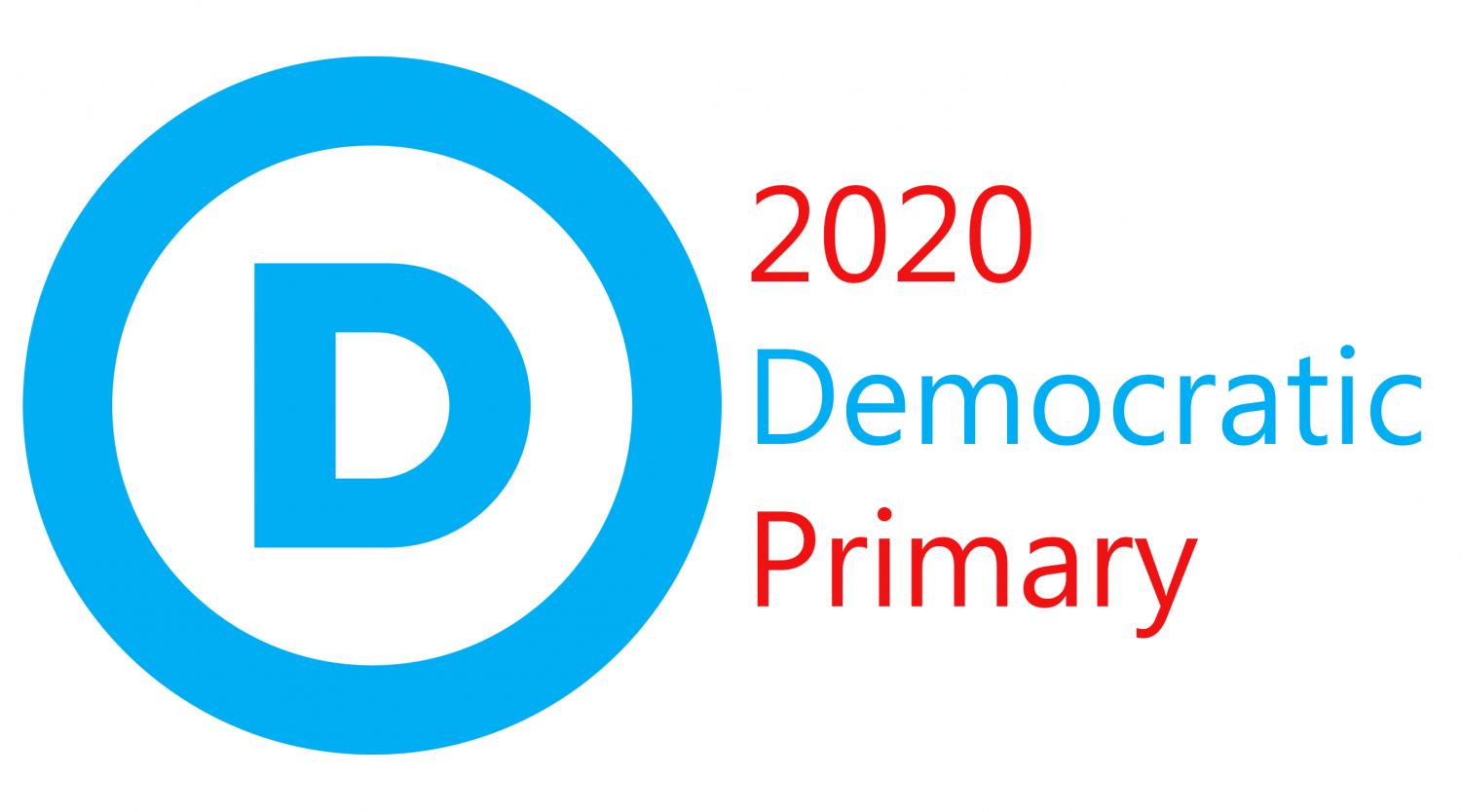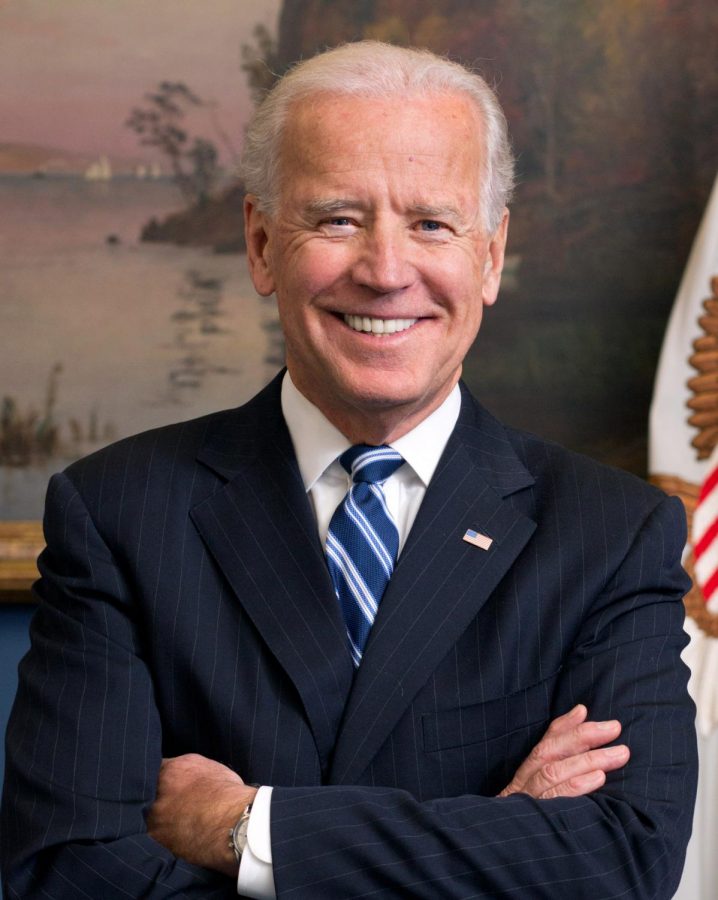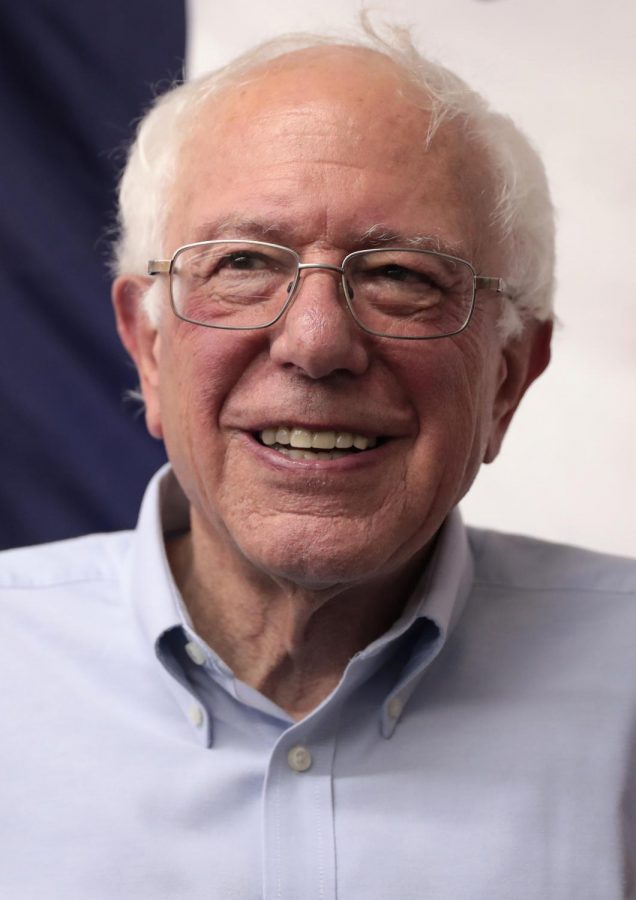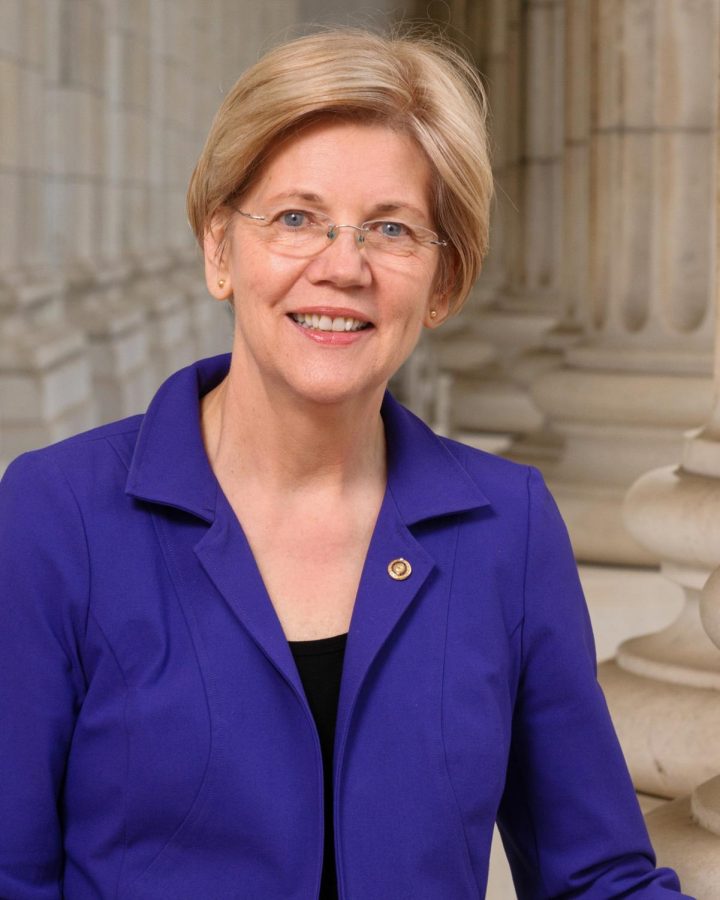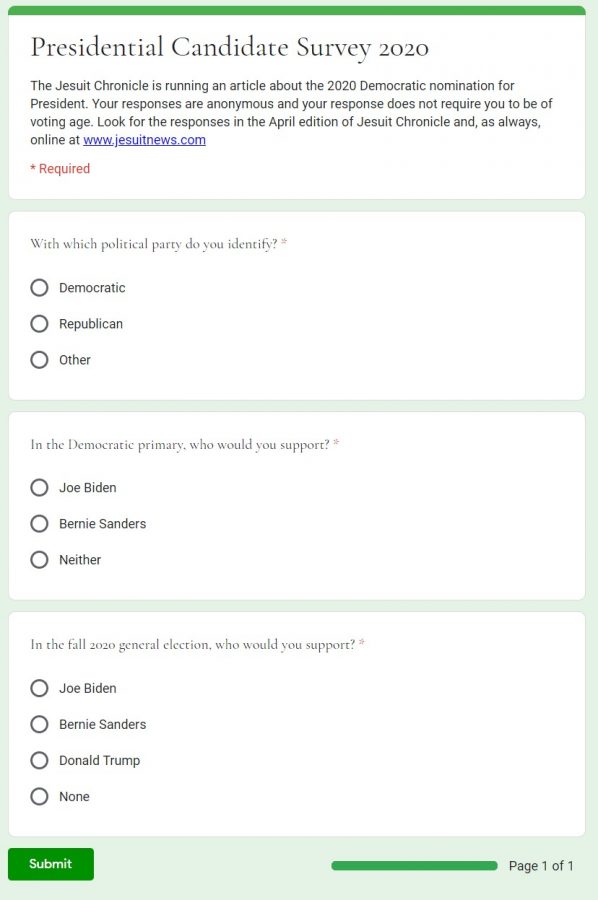What’s Coming Up in the May Democratic Primary?
March 12, 2020
With the 2020 Democratic primary election coming up, here is a look at the remaining candidates. Delegate counts are current as of 3/13/2020.
Joe Biden Overview – 881 Delegates
The current front-runner in the election, Joe Biden’s picture from his time as Vice President under Obama
The undeniable current leader in the primary, Joe Biden bears very few similarities to his opponent, Bernie Sanders. Biden is much more moderate and his campaign centers less around a few key plans like Sanders and is more about an idea. Joe Biden’s campaign website even claims “We’re in a battle for the soul of America” (joebiden.com). Similar to Sanders, however, Biden has a long, deep history in politics. Most notably, Joe Biden talks a lot about being Vice President under Obama. While critics often say that he exploits this fact to appear more similar to Obama and tie himself to that presidency, holding the VP position for eight years is no small feat. The Obama administration remains wildly popular among liberals and the fact that Joe Biden was second-in-command for it certainly speaks to his ideals, policy, and, most importantly, his experience. Biden’s position as VP gave him a closer look at the presidency than any of the other candidates. Despite his experience though, a look at Biden’s plans and policies in order to get a feel for what he would be like as a president is definitely important.
Biden’s biggest talking point by far is the middle class. A brief glance at Biden’s website will get you several references to how America was built by the middle class, and that it’s time to get power back to the middle class. To do this, he plans on things like raising the federal minimum wage to $15, removing tax cuts on the wealthy and big businesses, and putting more money into education to ensure that everyone gets access to a good education.
Biden also has plans on healthcare, as that has emerged as one of the biggest issues of this primary cycle. Biden, as a moderate Democrat, would like to expand the Affordable Care Act, the plan Obama implemented to help subsidize healthcare for people who cannot afford it but also do not qualify for Medicaid. As VP under Obama, Biden does not hesitate to mention that he also played a big role in creating and rolling out the Affordable Care Act, an important fact to note, as Biden is already well-familiar with the plan, and knows the ins and outs of not only changing it but how to actually get it past conservatives in the government and get changes implemented.
The important thing to note about Biden as a whole, especially when comparing him to Sanders, is that he is a moderate Democrat. This means that he has no grand plans of getting all Americans free healthcare and education, but his plans also will not require large budget increases, with tax increases to go along with them. Biden’s biggest strength in this race is that he is a moderate Democrat with deep knowledge of the presidential position, meaning that he knows how to get changes passed, probably more than anyone else in the primaries right now.
Bernie Sanders Overview – 725 Delegates
A picture of Senator Bernie Sanders, the current second place in the primary election
Most people are already familiar with Sanders, but as a close second in the race, it’s important to review him and his policies. Sanders’ big platform is universal healthcare, advocating a public system to replace the private healthcare system America currently has. His plan would include healthcare, dental, eyeglasses, hearing aids, and more. The most obvious and immediate question to ask about this system though is how Sanders plans to pay for it. Because people as well as companies who provide health insurance would no longer pay healthcare premiums, Sanders’ plan is to redirect the money that would be spent on the premiums to the government in the form of taxes. He also plans on raising taxes on large businesses and people with high incomes. Despite his plan, it is important to remember that this change would be large and incredibly complex, so estimating its actual cost is nearly impossible.
Sanders’ platform is not just universal healthcare, though. While that is certainly his biggest talking point, he also talks a lot about free state college and the Green New Deal. His free college plan, called College For All, aims to do just about exactly what you would expect: provide free public education to all citizens. The plan’s theory is that making all college education paid for by the government would force prices down on college education, similarly to his healthcare plan, as the government controlling the market would give it more control over profit margins and overall cost, so the cost of this plan on the government would not be as great as it initially seems.
The Green New Deal on the other hand is a talking point of many politicians, and Sanders is a big proponent of it. As the name implies, it is a plan to increase the use of renewable energy in the US, and create jobs in doing so. The allusion to FDR’s New Deal also implies the scope of the plan. More than just moving to renewable energy, it also aims to protect forests, hold fossil fuel companies accountable for the harm they do to the environment, and more.
The big caveat to everything Sanders proposes is how he plans to pay for it, though. His plans usually include clever ways to reduce the cost, but at the end of the day, tax raises will be necessary. Sanders points out that he only plans on raising taxes on the wealthy and on big businesses though, and the average American will not see any large change in their taxes, but many critics are skeptical and say that taxing the wealthy will not be enough to pay for everything he plans on. As noted with his healthcare plan though, his plans are huge and trying to estimate the exact cost of everything is incredibly difficult.
Who has the remaining delegates?
The third place candidate, Senator Elizabeth Warren dropped out shortly after Super Tuesday
Biden and Sanders do not have all the delegates, though. Other remaining candidates also have some from before they dropped out. (Note that all the below candidates have dropped out with the exception of Tulsi Gabbard)
Elizabeth Warren – 71
Mike Bloomberg – 61
Pete Buttigieg – 26
Amy Klobuchar – 7
Tulsi Gabbard – 2
What do Jesuit students think?
This survey sent out in March, asked students about their political preferences and what they thought about the upcoming elections
In a survey created by The Jesuit Chronicle, we asked students about their party affiliation, what they thought about the upcoming primary, and what they thought about the general election. In the survey, the majority of students identified as Republican. The results in the primary and general election were more interesting, where all the candidates appeared almost equal in their support. Biden and Sanders had nearly equivalent support in both questions, and Trump fell only just behind the two in the general election. See the full results below:
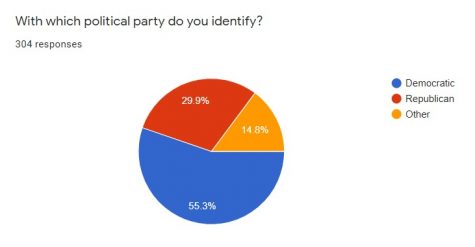
This question asked students to say how they identified politically, to help us judge the results of the following questions
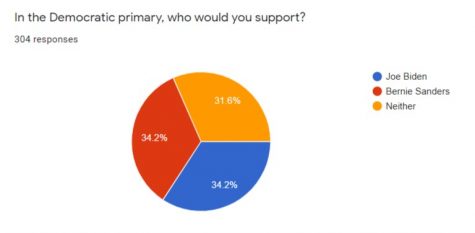
This question asked students what they thought about the upcoming democratic primary. Biden and Sanders had nearly equal support
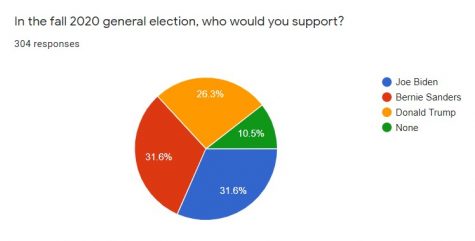
This question asked students who they would support in the general election, between Biden, Sanders, Trump. The results were similarly split between the candidates

